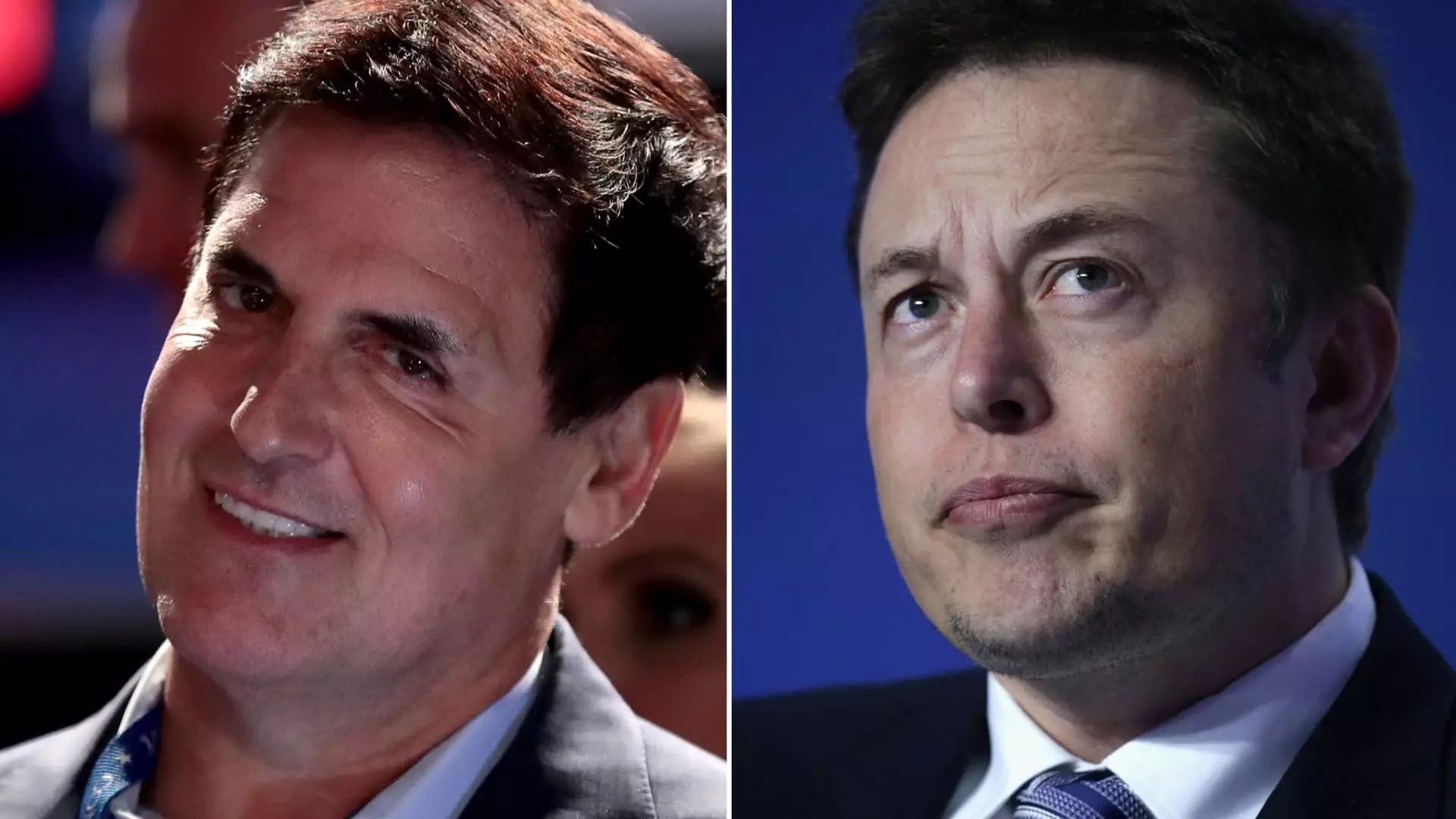The intertwining of wealth and politics often produces fascinating yet contentious dynamics. Recently, billionaire investor Mark Cuban targeted Tesla and SpaceX CEO Elon Musk in a social media post, publicly cautioning him against an alliance with former President Donald Trump. This unexpected public rebuke raises critical questions about loyalty, political capital, and the relationships that exist among the elite. As the political landscape shifts, it seems that the lessons learned from past alliances may not have permeated the minds of today’s power players.
In Cuban’s pointed warning, conveyed through an X post, he offered a stark reminder of the precarious nature of political alliances. Cuban stated, “Elon, there will come a time when you need something from Donald Trump,” indicating a belief that Musk may one day find himself reliant on the former president’s support. This raises an important issue: political loyalty often comes with strings attached, and those with immense power may not repay their supporters as anticipated.
Cuban’s commentary suggests that Musk may be entering into a partnership that could prove to be one-sided. The nuanced interplay of alliances in political scenarios can lead to disillusionment when one party does not fulfill its obligations. This is especially true in Trump’s case. Cuban’s assertion that Trump’s loyalty is ultimately self-serving is a refrain echoed by many who have faced disappointment after investing their political capital in the former president.
The Shifting Sands of Political Discourse
Compounding this tension is Musk’s recent shift in sentiment toward Trump after a period of public disparagement. The billionaire’s endorsement came alongside his engagement with conspiracy theories regarding Democratic strategies in immigration and electoral politics. Such volatility shows not only Musk’s willingness to change his posture based on political winds but also reflects the unpredictable nature of political discourse in contemporary society.
This volatility is not merely a personal quirk of Musk; rather, it illustrates broader trends within the political realm where influential figures frequently recalibrate their affiliations based on perceived personal and financial benefits. Unpacking this behavior invites scrutiny of the deeper mechanisms that drive the decisions of wealthy individuals when they navigate the tumultuous waters of politics.
Cuban and Musk represent divergent approaches to political engagement in the current electoral cycle. While Cuban has firmly aligned himself with Vice President Kamala Harris’ economic agenda, ardently advocating policies that promote business interests despite some controversies around corporate tax hikes, Musk seems more inclined to engage with Trump’s vision for government efficiency. Such stark contrasts not only demonstrate the ideological divides among the wealthy but also remind us of how economic interests and political loyalties can become intertwined, inflecting broader policy discussions.
As for Cuban, his aspirations regarding a role with the Securities and Exchange Commission (SEC) reveal a further layer of ambition and intent. He seems to be positioning himself favorably to influence economic policy, contrasting sharply with Musk’s interests in creating governmental oversight structures. This divergence could ultimately shape the regulatory landscape, as both billionaires work towards their respective goals while navigating an intricate political tapestry.
Ultimately, the interaction between Cuban and Musk underscores broader themes of power dynamics, loyalty, and potential disillusionment in political alliances. As billionaires navigate their paths through the political sphere, the question arises: How will their actions influence not only the electoral process but also the regulatory environment that governs their industries?
As leaders of industry and quantifiable wealth, Cuban and Musk hold substantial sway in political discussions. However, the tensions highlighted in their exchange remind us that even among the elite, relationships are not merely transactional. They are fraught with complexities that can lead to unexpected consequences—both for their ambitions and for the very political landscapes they seek to influence.
The cautious warning from Cuban to Musk serves as a valuable reminder: In the world of political alliances, wisdom gained from past experiences often serves as a better guide than ambition fueled by vanity.


Leave a Reply